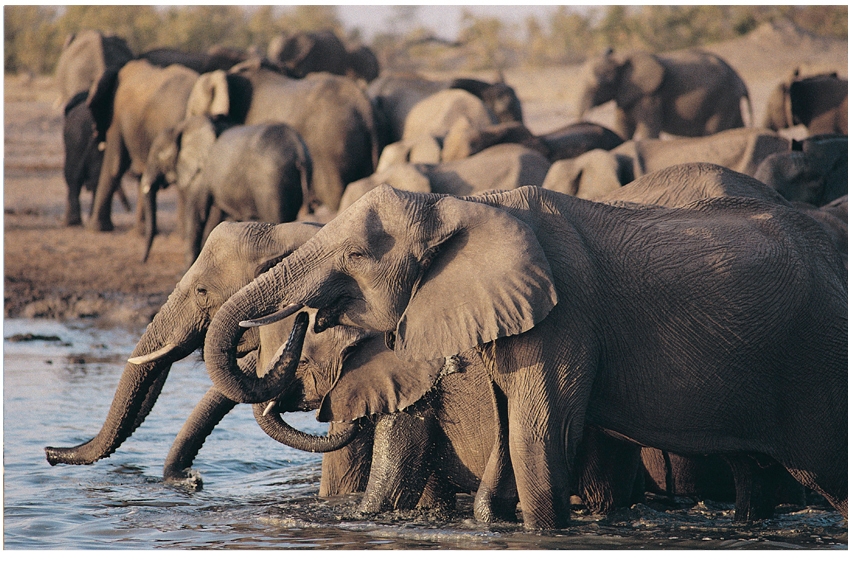Who would have thought that a pig and an elephant would become best friends? ‘When we began looking after Kimba, an orphaned elephant, she took an instant liking to Whisky, our pig,’ says James Varden, my guide. ‘Elephants are social animals, so they slept together. Whisky was extremely protective of Kimba and panicked if she was not there.’
I last came to Zimbabwe in the 1990s when tourism was blooming — so I’m interested to see what Mugabe has done to his country. Some friends criticised me for coming here, asking why I was supporting a dictator. ‘Most Zimbabweans want peace and to get on with life,’ James says. ‘When tourists come it gives us hope. And although Mugabe gets the visa money, the ordinary people benefit far more.’ Few tourists are coming; yet it is safe and the national parks are thriving.
Whisky lives at Siya Lima farm. But Kimba is no longer here. ‘She had to be relocated when the war vets moved in because they would have eaten her,’ James says. The Vardens use Siya Lima as a bed and breakfast, but we just stop by en route to Kopje Tops, his safari lodge, nestled in Mavuradonha Wilderness. Here 600 sq km of total wilderness surrounds us — we don’t see another person for our whole stay. Mobile phones don’t work; you are completely immersed in untouched bush.
All around are kopjes and mountains, through which we set out next morning for a couple of days’ walking — sleeping each night in a bush camp. We walk among long copper grass, miombo woodlands and mountain acacia, their leaves blushing red and yellow. We pass hibiscus flowers, giant butterflies and lucky bean coral trees. Baboons bark and we watch herds of zebra, giraffe and greater honey guides.
Mavuradonha means ‘place of falling water’ in Shona, and there are numerous streams. The water is so clear that we fill our drinking bottles with it, and jump into the River Tingwa during the midday heat to swim up through the rocky canyons.
We are now fully in the safari groove. Next is Harare, from where we fly to Lake Kariba in Zimbabwe’s north. The Zambezi River, Africa’s fourth longest, is dammed at Kariba, which creates the world’s largest manmade lake. Here we have hired a houseboat. It is the dry season, so numerous animals come down to the shore to drink. We see abundant herds of elephants. Some stand in a row drinking, others stride out into the lake. And there are impala and waterbuck. Kariba is piping hot so we sleep on the boat’s spacious deck, enjoying the breeze. We wake early to birdsong. Surrounding us is the sound of waves, the bellowing of elephants and the snorting of hippos.
One evening we see a most stunning sight. The land points to a finger of grass, on which two elephants stand, perfectly silhouetted against an enormous red ball of sun. Either side is a long line of impala grazing — the whole scene reflected in the water. A huge crocodile charges out of the water, catching fish, and the bobbing heads of hippos are everywhere. The elephants gently paw the ground in unison: their front feet moving rhythmically to uproot the grass, as if they are dancing. I contemplate whether the international community should have trumpeted louder about what Mugabe has done, and is still doing. Or is it best that we don’t interfere?





Comments